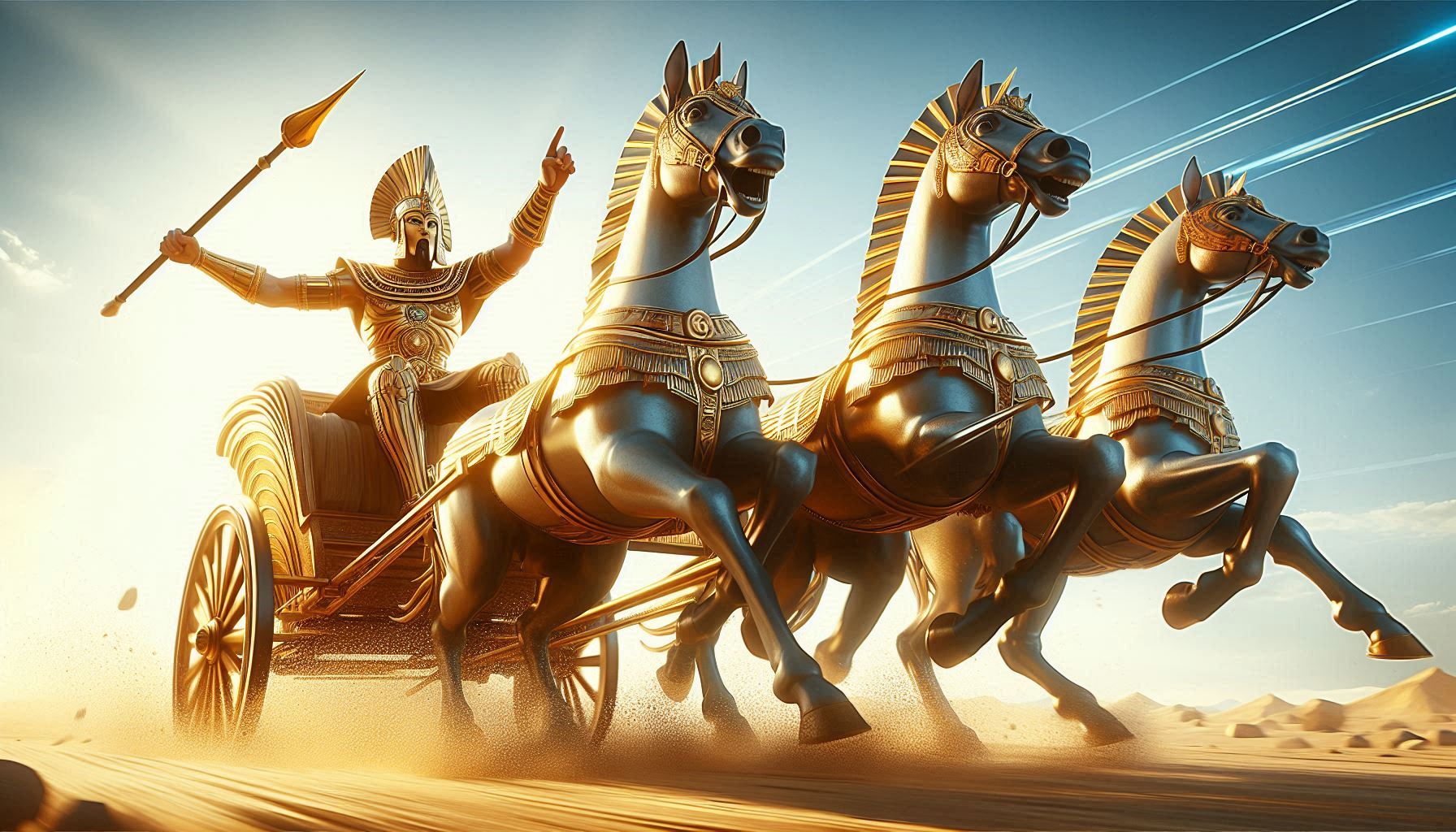The song is based on one of ancient Egypt’s most famous military victories: the Battle of Megiddo, fought in 1457 BCE during the reign of Pharaoh Thutmose III. This battle is often considered one of the earliest recorded battles in history and solidified Egypt’s dominance over Canaan, a critical region for its trade and security.
Historical Context
Pharaoh Thutmose III ascended to the throne after the reign of his stepmother, Hatshepsut, one of the few female pharaohs in Egyptian history. Thutmose’s ambition was to expand Egypt’s influence and control over the Canaanite region, a strategically important area controlling trade routes that linked Egypt with the rest of the ancient Near East.
The Canaanite city-states had formed a coalition led by the King of Kadesh, one of the most powerful rulers in the region, to challenge Egypt’s dominance. This coalition of city-states was a serious threat to Egypt’s control of the Levant, and Thutmose III launched his campaign to defeat them, reassert Egyptian control, and stabilize the region.
The Campaign
Thutmose III set out from Egypt with his army to confront the Canaanite forces at Megiddo, a fortified city that held a key position in the region. The march to Megiddo presented Thutmose with a strategic decision: to approach the city through one of three routes. Two of the routes were safer, though longer, while the third route was a narrow and dangerous mountain pass, which could easily lead to ambushes.
Thutmose, demonstrating his brilliant military mind, chose the risky mountain pass. This surprise move allowed the Egyptian forces to emerge directly behind the Canaanite army, catching them completely off guard.
Egyptian Strengths
Thutmose III’s army was highly organized and disciplined, with his chariot forces being a key asset. Egyptian chariots were faster and more maneuverable than their enemies’ heavier chariots, giving them an advantage in battle. The Egyptians were also known for their advanced infantry tactics and military formations, allowing them to outfight larger, less coordinated enemy forces.
While the Canaanite coalition likely outnumbered the Egyptians, they were unprepared for Thutmose’s bold maneuver through the mountains. When the Egyptians arrived at Megiddo, they immediately attacked the enemy’s lines, taking the Canaanite kings by surprise.
The Battle
The Battle of Megiddo itself was fierce. As the Egyptian chariots charged down from the mountains, they broke through the Canaanite defenses. The Canaanite kings had expected a frontal assault, not an attack from their flank, and their forces were thrown into confusion.
Despite being outnumbered, the Egyptian army fought with precision and overwhelming force. The chariots and infantry worked together to shatter the Canaanite forces, causing many of them to flee the battlefield and seek refuge within the fortified walls of Megiddo.
Siege of Megiddo
Though Thutmose III had won the battle on the field, the Canaanites retreated to the city of Megiddo, which was heavily fortified and capable of withstanding a prolonged siege. Undeterred, Thutmose began a methodical siege that would last several months. His forces surrounded the city, cutting off supplies and wearing down the defenders over time.
Thutmose’s patience and tactical skill eventually paid off, as the Canaanite leaders were forced to surrender. This victory was a major triumph for Thutmose III, allowing Egypt to reassert control over Canaan and expand its influence further north.
Challenges and Risks
Thutmose’s decision to take the narrow mountain pass was a significant gamble, as the terrain made it difficult to move his army and could have easily led to an ambush. The Canaanite forces were larger in number, and if they had been prepared for the Egyptian assault, the outcome might have been very different. However, Thutmose’s calculated risk and the superior discipline of his army allowed them to win the day.
The Aftermath
The Battle of Megiddo was a turning point in Thutmose III’s reign. It secured Egypt’s dominance over Canaan, allowing Thutmose to establish Egyptian authority over the region for years to come. This battle also enhanced his reputation as a powerful and effective leader, both within Egypt and among its enemies.
Thutmose III continued to lead many military campaigns after Megiddo, expanding Egypt’s borders and securing its position as one of the most powerful empires in the ancient world. His reign is remembered as a golden age of Egyptian military and political power.
Symbolism in the Song
This story reflects Egypt’s undefeated spirit, embodied in the life and reign of Thutmose III and celebrated in your song. His victory at Megiddo is a testament to Egypt’s military strength and strategic genius, securing his place in history as one of Egypt’s greatest rulers.

